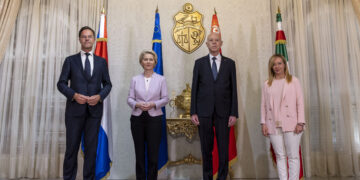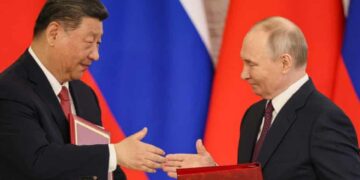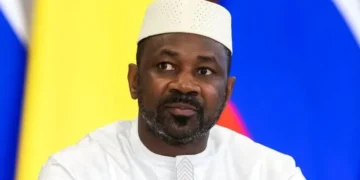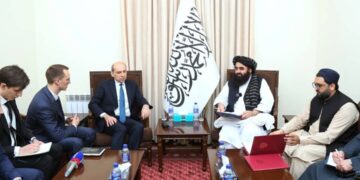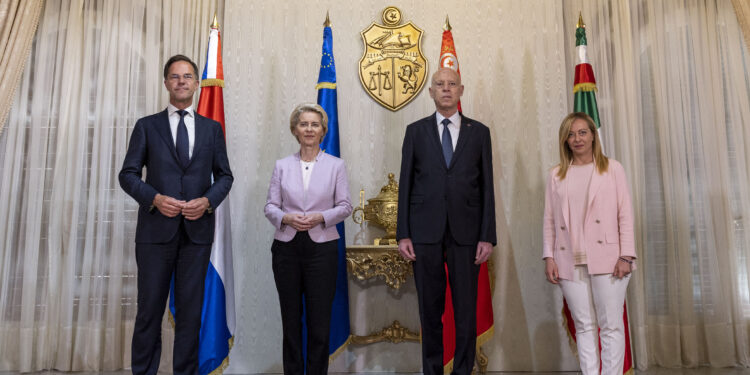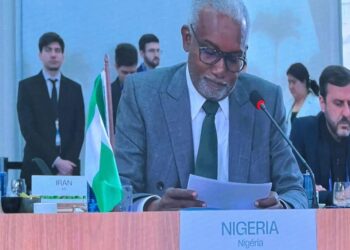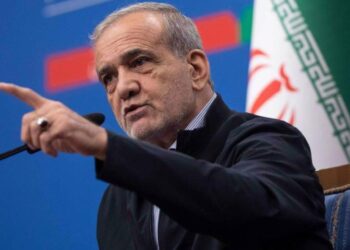By Ebi Kesiena
The European Union (EU) and Tunisia have signed a Memorandum of Understanding (MoU) for a “strategic and comprehensive partnership” on irregular migration, economic development and renewable energy.
European Commission President Ursula Von der Leyen, Dutch Prime Minister Mark Rutte, and Italian Prime Minister Giorgia Meloni held renewed talks with Tunisian President Kais Saied, as the number of migrants and refugees departing from Tunisia and trying to reach Europe has significantly increased in recent months.
The strategic MoU which includes financial assistance, came as Tunisia has been under fire over its treatment of migrants since February, after President Saied accused “hordes” of migrants from sub-Saharan African countries of a “plot” to change the country’s demographic makeup.
Speaking at the Tunisian presidential palace, European Commission President noted that Sunday’s accord will overall promote shared prosperity citing “five pillars”, including the all-important question of migration.
“We need an effective cooperation, more than ever and greater cooperation against networks of smugglers and traffickers and in search and rescue operations.
“Tunisia and the European Union are bound by our shared history and geography, and we share strategic interests,” she said.
Among other things, they agreed to extend the Erasmus exchange program to Tunisia and to provide €65 million in aid for 80 schools.
On the energy front, the European leaders recalled that Tunisia is involved in projects for an undersea fiber-optic cable and an electricity cable to link the two shores of the Mediterranean.
Mrs von der Leyen stressed that the EU was keen to support the development of renewable energies in the Maghreb country, which has “enormous potential”.
Also, Italian Prime Minister Giorgia Meloni explained that the partnership between Tunisia and the European Union (EU) can be seen as a model for the establishment of new relations with North Africa.
Responding, Tunisian President Kais Saied said there is the utmost need for a collective agreement on what he called “inhuman migration”, for which he blamed criminal networks.
“This memorandum should be coupled at the earliest time by a set of binding agreements emanating from its principles,” he said.
Along with Libya, Tunisia is the main point of departure for thousands of migrants crossing the central Mediterranean to Europe.
The North African country, a key route for migrants trying to make their way to Europe, has since seen a rise in racially motivated attacks and tensions increased after a Tunisian man was killed on July 3 in an clash between locals and migrants in the city of Sfax.
Since then, hundreds of migrants fled their homes in Tunisia or were forcibly evicted and driven to desert areas along the borders with Algeria and Libya, left to fend for themselves in intense heat.
